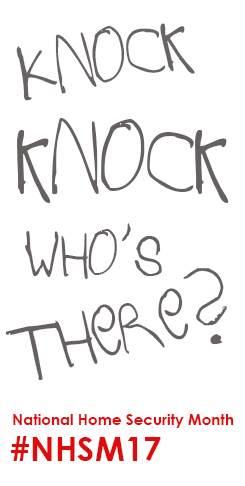
Table of Contents
Taking care of the entry points in your home
Your locks are the first line of defence against a break in but would you believe that 48% of people often don’t bother locking their doors when they’re in the house, 64% sometimes leave doors open when they’re NOT at home, 30% of break ins happen via an insecure door or window and 25% of burglaries involve lock snapping.
This tells us 2 key things: firstly, we need to get much better at keeping doors and windows secure; and secondly, the quality of the locks we use is important.
Why it’s so important to lock your doors
This point would really seem pretty self-explanatory but the statistics quoted above show that people just don’t take the issue as seriously as they should. In nearly a third of burglaries, an intruder is able to simply walk in through the front door because it’s not been locked. If this happened to you not only would you be seriously kicking yourself, you may find that your home insurance policy won’t pay out because you’ve failed to take the most basic steps to protect your home.
These tips may help you be more vigilant with door security:
- Always keep doors locked even when you’re in the house
- Don’t assume you can pop out even for a minute and it will be ok to leave the door unlocked – an intruder can be in and out very quickly
- Never answer one door if another is unlocked – this is a classic distraction burglary tactic
- Keep some kind of reminder near the door to prompt you to lock up such as this free download
- Educate everyone who lives in the house to do all of the above
Why it’s so important to use good quality locks
Keeping your door locked is just the first step, you also need to know that the locks you’re using are up to the job. At stated at the start of this blog, 25% of burglaries involve lock snapping – that means gaining access by snapping the cylinder to manipulate the lock to open. If you know how it’s quite a simple process – unless you have an anti-snap lock fitted. These locks snap in a pre-determined position which ensures that the lock remains secure even if tampered with. These are definitely recommended as the best way to keep your home secure – as long as you actually lock them!!
Other lock ‘good practice’
As well as the above precautions here are a few other things it’s worth thinking about when it comes to lock security:
- Make sure you know who has a spare key and that you retrieve any keys you have given out to tradespeople or similar when they’re no longer needed
- Don’t ever hide keys in the garden in case you get locked out – you’re more likely to allow someone else in!
- Don’t leave keys where they can be hooked out through a letterbox or window
- If you repeatedly find you lose keys, consider a key safe or key pad system as an alternative (these are also good for people with limited mobility who have carers coming in)
- When moving to a new property it’s worth getting the locks changed as you don’t know who may already have a key
Hopefully this post will highlight to you the importance of maintaining the integrity of your entry points from both a functional and behavioural point of view.
Next week, for National Home Security Month, we’ll be looking at smart security and all that it can offer.
See previous National Home Security Month posts and don’t forget about our daily security tips on Twitter and Facebook
